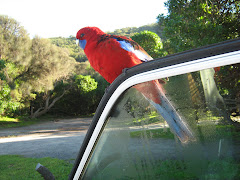
In current neurobiology it is not the idea of a Darwinian survival of the fittest any longer but the concept of man as a cooperative creature that defines the picture (cf. Bauer, 2006). It seems inappropriate to understand this research as a revelation of truth in a traditional philosophical sense. As the humanities have highlighted the human interdependency, interrelatedness, and intersubjectivity for decades it seems adequate to range today’s biology within a broader understanding of the development of the Western cultural space, answering already existing manners of thinking about human nature.
Such a cultural understanding of discourses of knowledge production within society, taking the natural scientific discourse as just one among others, does not necessarily subvert its explanatory power. Yet, concepts of reality must thus be seen in a broader context. The relatively new concept of the mirror neuron system (cf. e.g. Bauer, 2007 39, 128-134) reflecting not only the other person’s action in an individual’s brain but also the other’s image of oneself and thereby opening a corridor of possible development mirrors already existing ideas of intersubjectivity.
Such an idea strikes me to center on the fact that human beings live of and within images they have of themselves and others. While these images influence each person’s development she also influences the images existing in her cultural environment. An active interplay (as it is devised by numerous tendencies in the postmodern humanities) ensues between possibilities, modes of action, corridors of development, interests, and personal identities.
I believe that no one can seriously imagine a child developing a personality without having been introduced to this cultural intersubjective space. I also believe that children – having not developed a clear personality yet – need the images projected for them by others to come to an identity. Being much more involved and interfused in intersubjective culture, adults have already developed decisive interests that can be considered by others. To develop such interests, which translate into personal images of oneself, it is necessary to have been confronted with others’ images of a self and even of oneself.
To distance themselves from possible and accepted personal identity options children need to identify themselves with any option first. To learn to handle the intersubjective cultural game from a suitable position it is necessary to really incorporate a position first. Therefore, it is absolutely contrary to the goal of autonomy (meant in the intersubjective sense) not to mirror a strong idea of one’s children’s personality for them in the beginning of their education.
But where is the line that must be respected to give another human being personal space? When is the moment reached at which a young person’s own wishes should be respected? Obviously, it cannot be a question to let (also very young) children occupy themselves with what interests them at a particular stage of development. I do not wish to argue for total parental interference. But the possibilities parents (or educational personnel) offer should be well thought through. The frame must be set firmly up to a certain point. When is this point reached?
I actually have no definite answer to this question. Surely, such a borderline must be thought of as gradual and not as static. It seems as though very firm images of one’s own future must always lead to a functionalization of all the others who are necessarily part of the picture. Obviously, the same holds true for very firm images of one’s children’s future. Maybe the answer must be functional: we must engage in an ongoing assurance of the other’s personality within our own image. Any image we have of our (and our children’s) future should thus rest dynamic and should be focused on the other persons in our lives and not on our individual achievements. The focus should especially be on human versus material growth.
We need clear images of the future to give our lives a sense. Without a goal there cannot be any motivation. Even though owning a house or being a writer can be valid personal goals, helping us to move onward, their fulfillment cannot be pursued at all costs. When other affected persons (and due to our intersubjective nature our actions always affect others) are less carefully considered than the overall image we strive to achieve we destroy all hope of contentment. In the end it is not the image that makes live worthwhile but our balanced personal identity. This is only possible by an equilibrium between ourselves and others. Such balance can surely not be found by blindly following a personal image without being considerate of the other persons involved.
Sources
Bauer, Joachim. Lob der Schule – Sieben Perspektiven für Schüler, Lehrer und Eltern. Hamburg: Hoffmann und Campe, 2007.
---. Prinzip Menschlichkeit: Warum wir von Natur aus kooperieren. Hamburg: Hoffmann und Campe, 2006.






Keine Kommentare:
Kommentar veröffentlichen